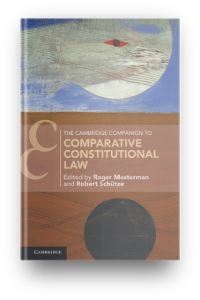In this chapter, ‘European constitutionalism’ refers to European Union constitutionalism. European constitutionalism will be examined as an epitome of transnational constitutionalism; i.e. as a species of constitutionalism distinct from state or national constitutionalism.
Adopting the conceptual framework of transnational constitutionalism implies approaching the EU and its legal system from a particular disciplinary perspective and relating them to a particular legal order. The debate on the basic legal characteristics of the EU manifests the impact of legal perspectivism, prevalent in all law but especially conspicuous in EU law, lying on the interface of diverse legal orders and defying an unambiguous compartmentalization in the conventional divisions of legal disciplines. Yet, acknowledging the possibility of differing conceptual frameworks and perspectival commitments does not amount to buffering them against criticism coming from other perspectives. Thus, I shall claim that questioning the constitutional characterization of the EU by prominent scholars, such as Dieter Grimm and Peter Lindseth, reflects the persistent impact of state constitutionalism, which forms a major obstacle to probing into the specificity of European transnational constitutionalism. So the distinct features which have led these observers to doubt the existence of European constitutionalism can – and in my mind should – be understood as peculiarities of this variant of constitutionalism. These include the evolutionary, process- like nature of European constitutionalism; its multidimensionality, due to the constitutionalization of particular policy fields; and its dependence on Member State, national constitutionalism. Analysis of the peculiarities will be the main focus of this chapter.
Catching the European specificities requires adopting a thin notion of constitutionalism, summarizing the shared features of different variants of constitutionalism; i.e. the common denominator of constitutionalism. In this chapter the common denominator will be sought in constitution’s position as higher law and in the functions this higher law is expected to accomplish.
